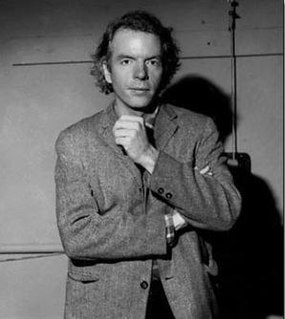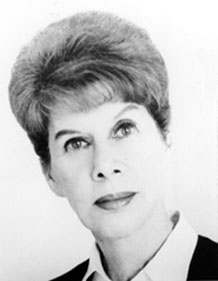Top 1200 Stranger Than Fiction Quotes & Sayings - Page 5
Explore popular Stranger Than Fiction quotes.
Last updated on November 8, 2024.
What I like about mixing fiction and non-fiction is being able to fully explore an idea without being bound by genre. If you scratch under any surface there are histories for everything, aren't there? And there's unknown women's history in everything, too. It all gets simplified because its complexity is more than you can stand sometimes. So you need full freedom of expression.
Science fiction is the most important literature in the history of the world, because it's the history of ideas, the history of our civilization birthing itself. ...Science fiction is central to everything we've ever done, and people who make fun of science fiction writers don't know what they're talking about.
Now, I'm a failed political consultant. But sometimes fiction has a way of capturing people's imagination in a way that non-fiction doesn't. Conservatives typically haven't written much fiction - specifically political thrillers - over the years to educate, inspire and mobilize people on issues of great import, but we ought to.
I'm a compulsive reader of fiction. I fell in love with novels when I was a teenager. My wife Marilyn and I... our initial friendship began because we are both readers. I've gone to sleep almost every night of my life after having read in a novel for 30 or 40 minutes. I'm a great reader of fiction and much less so of non-fiction.
On the plane, I like to read fiction set in the location I'm going to. Fiction is in many ways more useful than a guidebook, because it gives you those little details, a sense of the way a place smells, an emotional sense of the place. So, I'll bring Graham Greene's The Quiet American if I'm going to Vietnam. It's good to feel romantic about a destination before you arrive.
In fiction, I searched for my favorite authors, women I have trusted to reassure me than not all teenage guys are total ditwads, that the archetype of the noble cute hero who devotes himself to the girl he loves has not gone the way of the rotary phone. That all I had to do was be myself (smart, hardworking, funny) and be patient and kind and he and I would find each other. As Bea would say, this why they call it fiction.
A fine memoir is to a fine novel as a well-wrought blanket is to a fancifully embroidered patchwork quilt. The memoir, a logical creation, dissects and dignifies reality. Fiction, wholly extravagant, magnifies it and gives it moral shape. Fiction has no practical purpose. Fiction, after all, is art.
The Booker thing was a catalyst for me in a bizarre way. It’s perceived as an accolade to be published as a ‘literary’ writer, but, actually, it’s pompous and it’s fake. Literary fiction is often nothing more than a genre in itself. I’d always read omnivorously and often thought much literary fiction is read by young men and women in their 20s, as substitutes for experience.
Everybody should read fiction… I don’t think serious fiction is written for a few people. I think we live in a stupid culture that won’t educate its people to read these things. It would be a much more interesting place if it would. And it’s not just that mechanics and plumbers don’t read literary fiction, it’s that doctors and lawyers don’t read literary fiction. It has nothing to do with class, it has to do with an anti-intellectual culture that doesn’t trust art.
In general, fiction is divided into 'literary fiction' and 'commercial fiction.' Nobody can definitively say what separates one from the other, but that doesn't stop everybody (including me) from trying. Your book probably will be perceived as one or the other, and that will affect how it is read, packaged and marketed.
I obviously read and adore traditional fiction. I teach traditional fiction, I also teach all kind of not-so-traditional fiction. And since I'm such a plot buff, and I'm really such a narrative buff, I can't seem to relinquish my - not just reliance - but excitement about those traditional techniques.
All fiction, if it's successful, is going to appeal to the emotions. Emotion is really what fiction is all about. That's not to say fiction can't be thoughtful, or present some interesting or provocative ideas to make us think. But if you want to present an intellectual argument, nonfiction is a better tool. You can drive a nail with a shoe but a hammer is a better tool for that. But fiction is about emotional resonance, about making us feel things on a primal and visceral level.
I think all of us begin as writers. I wanted to be a writer from the time I as eight, long before I heard of jazz. The question is, once you have that obsession, what is your subject going to be and you often don't know for some time. It might become fiction, it might be non-fiction, and if it's non-fiction it can go in any number of directions.
When the Stranger says: "What is the meaning of this city? Do you huddle close together because you love each other?" What will you answer? "We all dwell together To make money from each other"? or "This is a community"? Oh my soul, be prepared for the coming of the Stranger. Be prepared for him who knows how to ask questions.
The real origin of science fiction lay in the seventeeth-century novels of exploration in fabulous lands. Therefore Jules Verne's story of travel to the moon is not science fiction because they go by rocket but because of where they go. It would be as much science fiction if they went by rubber band.
Without our familiar props, we are faced with just ourselves, a person we do not know, an unnerving stranger with whom we have been living all the time but we never really wanted to meet. Isn't that why we have tried to fill every moment of time with noise and activity, however boring or trivial, to ensure that we are never left in silence with this stranger on our own?
I do think that science fiction ideas are best expressed through visual media like film and TV. Realist literature depicts things that we have seen in life, but science fiction is different: what it depicts exists only in the author's imagination. When it comes to science fiction, the written word is inadequate.
Whenever you're dealing with something that's difficult to describe, that you can't get across to someone in a sound bite, it sounds like the normal default is to pick what's easiest, and in the case of fiction written by women, fiction involving women, fiction involving any sort of relationship, the word that comes to mind is 'romance.'
I probably spend more time writing than reading science fiction. I find that science-fiction literature is so reactive to all the literature that's gone before that it's sort of like a fractal. It's gone to a level of detail that the average person could not possibly follow unless you're a fan. It iterates upon many prior generations of iterations.
It had also been my belief since I started writing fiction that science fiction is never really about the future. When science fiction is old, you can only read it as being pretty much about the moment in which it was written. But it seemed to me that the toolkit that science fiction had given me when I started working had become the toolkit of a kind of literary naturalism that could be applied to an inherently incredible present.
I write some art criticism, and one thing that's clear to me is that politics is fashionable in the American art world in a way it maybe isn't in American fiction. Your work of art becomes fashionable the moment it has some kind of political commentary. I think this has its dangers - the equation between fashion, politics, and art is problematic for obvious reasons. Nonetheless, the notion of politics as being de rigueur in the world of fiction is almost unthinkable. In fiction in America at the moment, the escape into whimsy is far more prevalent than the political.























































